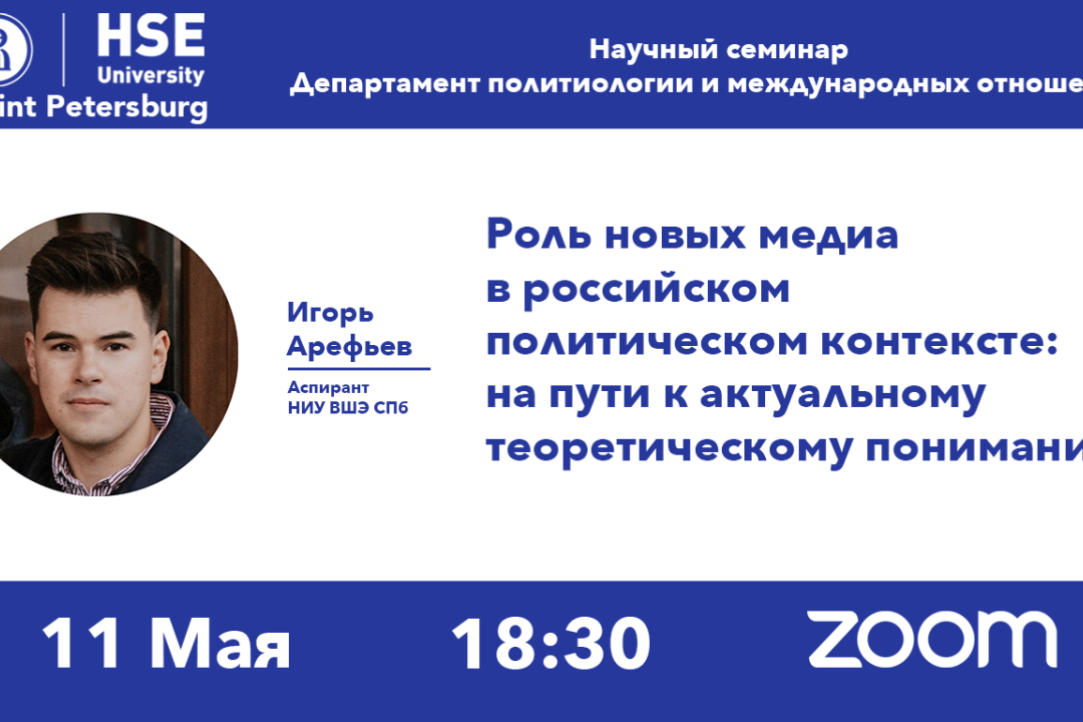- A
- A
- A
- ABC
- ABC
- ABC
- А
- А
- А
- А
- А
- HSE Campus in St. Petersburg
- Saint-Petersburg School of Social Sciences
- Department of Political Science and International Affairs
- News
- The HSE Department of Political Science invites you to the Research Seminar, May 11, 2021 at 18.30
-
Departament
- About the Department
- Faculty and Staff
-
Annual Conference “The October Readings”
-
More About the Conference
-
Upcoming Conference
-
Archive
-
-
Academic Seminar
-
Upcoming seminars
-
Previous Seminars
-
198068 Saint Petersburg
Griboyedov channel embankment, 123, Room 324
t. +7 (812) 644-59-11, plus 61415
The Department was created on the basis of the Department of Politics, which was established in 2005. The main purpose of the department is to provide today’s students with professional training in the fields of political analysis and sociopolitical engineering, as well as in creating a special creative atmosphere that allows for the formation and development of a society of political experts who are capable of not only carrying out professional research, but also proposing and implementing solutions to relevant Russian and international problems.
 Terrorism and Political Contention. New Perspectives on North Africa and the Sahel Region
Terrorism and Political Contention. New Perspectives on North Africa and the Sahel Region
Atanasiu M., Besenyő J., Denisova T. S. et al.
Springer, 2024.
Scherbak A. N., Zubarev N., Semushkina E. S.
Social Sciences. 2024. Vol. 55. No. 2. P. 22-48.
Kabanov Y., Anna Kuzmenko.
In bk.: 16th International Conference, SCSM 2024, Held as Part of the 26th HCI International Conference, HCII 2024, Washington, DC, USA, June 29–July 4, 2024, Proceedings, Part III. volume 14705. Social Computing and Social Media. Cham: Springer, 2024. P. 107-119.
OxonCourts Judicial Studies Graduate Colloquium. OxonCourts Judicial Studies Graduate Colloquium. University of Oxford, 2019

The HSE Department of Political Science invites you to the Research Seminar, May 11, 2021 at 18.30

Department of Political Science and International Relations
Research Seminar
Role of New Media in Russian Political Environment: Towards a Contemporary Theoretical Understanding
May 11, 2021 | 18.30
ZOOM
Contemporary social and political research is very much concentrated on the digitalisation of everyday life. It is true that our habits, and political habits are no exception, are changing due to the digital transformation of traditional institutions. The internet and new media as its derivative are usually seen as the main contributors to such shift. However, there is still a huge scientific debate about the nature of this shift. And if cyber-optimists are noting that new media provides an independent channel of information and a free platform for politically disadvantaged groups, cyber-pessimists are arguing that it also provides a channel for political manipulation.
In his work, the author has synthesized major scientific contributions on the role of new media on political life in the Russian context. The horizontal interaction, which is observed in the new media environment, is, of course, deliberative in its nature, therefore it is interesting to understand if it can affect political discussions in regimes, where the system is based on depoliticisation. In this work, the author introduces some psychological concepts (such as sublimation) and approaches, that are relatively underused in political research. In the conclusion, the author identifies possible streams of future empirical research within this topic and argues, that the most underresearched stream is cognitive political engagement. At the end of the statement, the author will also demonstrate the preliminary results of research on the Russian 2021 winter protests, where he applies the developed theoretical concepts.
Working languages are Russian / English
Seminar will be online via Zoom.
The link to join Zoom: https://zoom.us/j/99822632801?pwd=d01VYllRV3FXRVhNRE40c1BWOGZSUT09
Meeting ID: 998 2263 2801
Password: 956001
If you have questions please contact Stanislav Shkel (sshkel@hse.ru ).
-
https://elearning.hse.ru/en/mooc/
Massive Open Online Courses
-
https://www.hse.ru/en/visual/
HSE Site for the Visually Impaired
-
http://5top100.com/
Russian Academic Excellence Project 5-100
- © HSE University 1993–2024 Contacts Copyright Privacy Policy Site Map
- Edit

